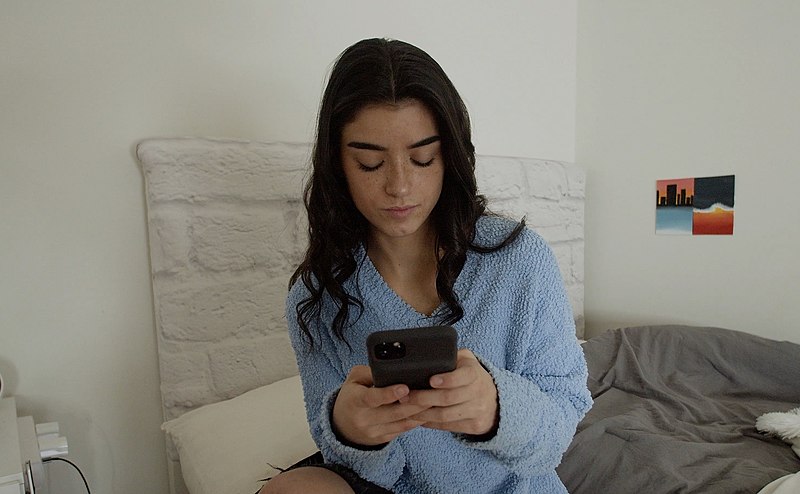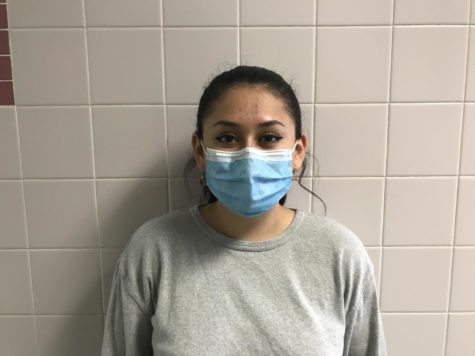Social media fame worsens influencers’, teens’ mental health
Photo by Priyanka Pruthi used under Creative Commons Attribution 3.0 Unported license.
Dixie D’amelio scrolls through her comment section on TikTok.
December 13, 2021
Teenage influencers are the modern celebrities, except these teens now struggle not only with societal pressures, but also with the persistent hate and criticism social media exposes them to. Recent media attention to the D’Amelio Show has made a more direct connection between fame and mental health issues.
The D’Amelio Show portrays teen influencers Charli and Dixie D’Amelio wrestling with mental health struggles, much of which they link to social media. Streamed on Hulu, the eight episodes feature Charli’s everyday life, as well as her anxiety and insecurities about posting. Clips of Dixie experiencing a panic attack triggered by online hate comments show the extent to which fame affects her. These extremely vulnerable moments create a sense of relatability around the sisters. Their honesty has brought a grave truth to light; fame (especially social media fame) has serious drawbacks.
“[influencers] should put themselves first,” junior Jo Kammer said. “Mental health breaks are important and many celebrities take them, so influencers should too.”
Due to social media platforms such as TikTok, Youtube and Instagram, global popularity now seems relatively accessible, even though few actually achieve it. The probability of having one or two posts do well is high, yet because of the unpredictable algorithms, achieving consistent views is difficult. According to Fountain Hills Recovery, a notification from social media creates a rush of dopamine which can be addictive. Social media post interactions are impossible to predict and when an outcome is unpredictable, the behavior is more likely to repeat according to Pew Research Center.
When a post or video does poorly, many become discouraged and begin to depend on social media for validation. Jacqueline Sperling, PhD and psychologist explains that teens post to increase self-esteem and receive validation from others. When that constant thirst for validation is not quenched, teens question themselves and feel that they are missing something that others seem to have: popularity.
“Social media often does more damage to celebrities’ mental health than good,” junior Paria Karimi said. “Every time a celebrity is on social media, they have to take constant breaks because of how stressful it is.”
Providing a mask for viewers to hide behind, social media allows users to leave hateful comments on a post. According to the Pew Research Center, 72% of Americans use social media, the majority being teens ages 13-17. Fountain Hills Recovery notes that many are left with a sick feeling, later identified as anxiety and in some cases depression. With the large amount of teens on social media, the negative effects are widespread, both among the general population and celebrities.
Teen influencers live in a fishbowl and even though their glamorous fame-filled lives seem perfect, the reality is quite the opposite. Alexandra Mondalek began to grow her social media account when she advanced in her career as a fashion reporter. Mondalek expressed that she felt pressure to mold herself into a brand and endured crushing anxiety because of it. While she only had a little more than 1000 followers on Instagram, she had already begun experiencing attachment to social media validation. Mondalek constantly compared herself to her Instagram feed, even saying that the social media lifestyle is inescapable.
“People fail to understand that celebrities’ careers revolve around social media, and in that lifestyle criticism holds a lot of significance,“ Karimi said. “There is so much pressure to be perfect all the time, and celebrities are just people. It’s impossible to always be fine.”



